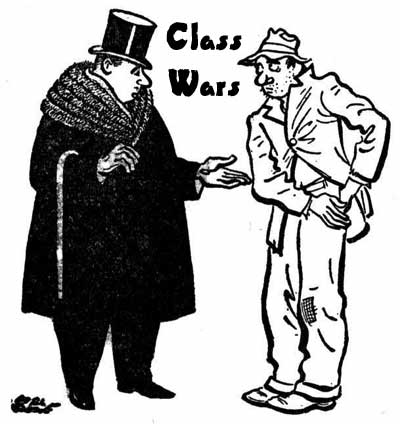Pt. 1.
The measures recommended by capitalists and by governments in order to overcome the crisis, i.e., low wages, the funding and privileging of production and of investments, tax deductions for profit and cuts in the social spending of the Public sector, increase profit or even the rate of profit beyond any measure of doubt, but they do not contribute to the reduction of unemployment, whether by increasing the rate of capital employment or by increasing investment. For they do not increase either of these two. This is because the underemployment of capital means that demand is low when compared to the production potential of the given capital. So, as long as demand remains low, capitalists will not increase their investment. The measures I cited above do not increase either the rate of the employment of capital or the investments, or the employment of the labor force; they only increase profit.
The measures recommended by capitalists and by governments in order to overcome the crisis, i.e., low wages, the funding and privileging of production and of investments, tax deductions for profit and cuts in the social spending of the Public sector, increase profit or even the rate of profit beyond any measure of doubt, but they do not contribute to the reduction of unemployment, whether by increasing the rate of capital employment or by increasing investment. For they do not increase either of these two. This is because the underemployment of capital means that demand is low when compared to the production potential of the given capital. So, as long as demand remains low, capitalists will not increase their investment. The measures I cited above do not increase either the rate of the employment of capital or the investments, or the employment of the labor force; they only increase profit.
But it is said that increased profit means increase of investments and thus increase of the employment of the labor force. This is incorrect. For capitalists invest only when the expected future demand and expected future profit is high, not when the profits of one or more years are high as a result of state funding, tax deductions and low wages rather than of increased demand.

